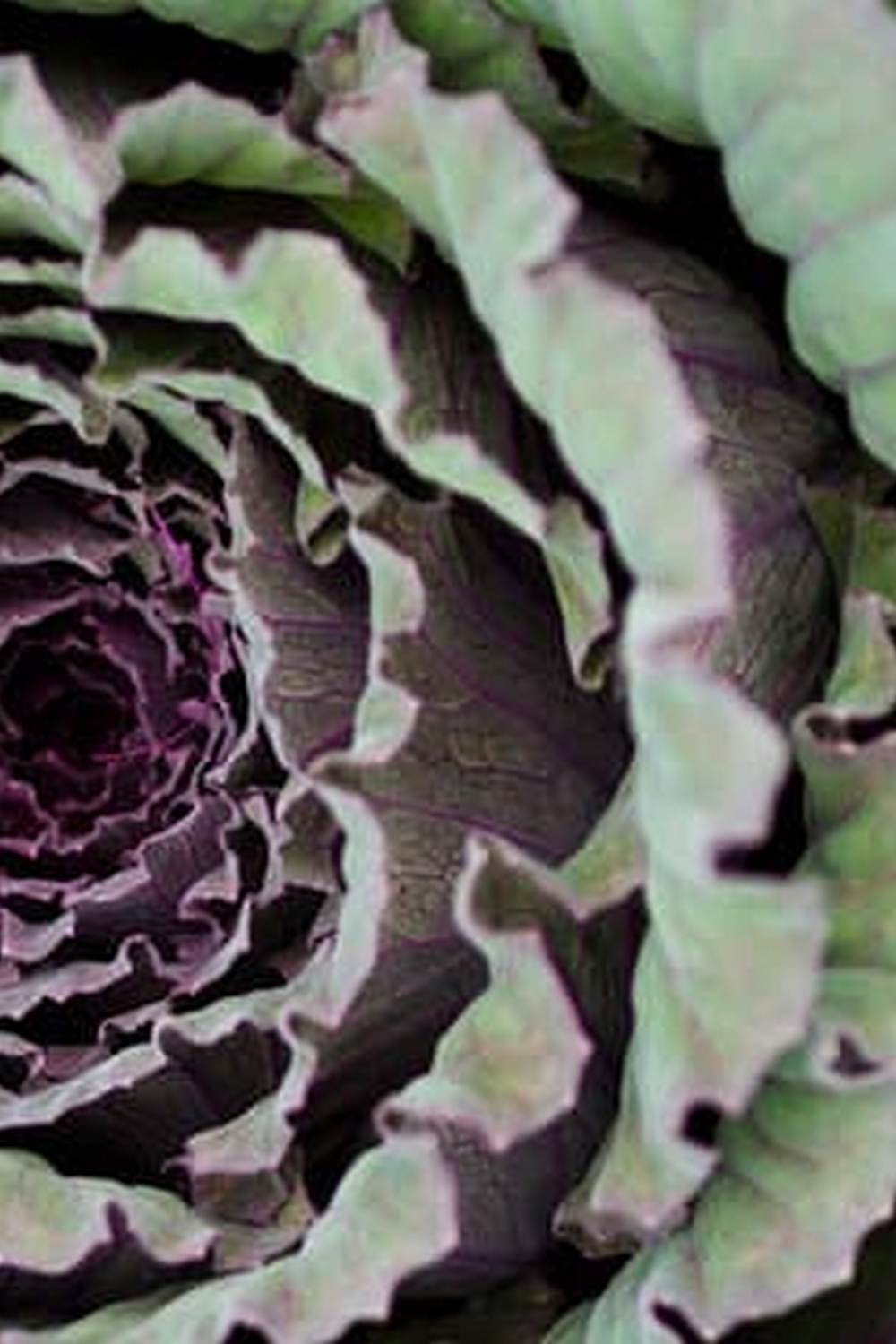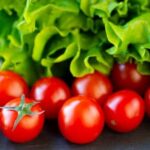Florida vegetable gardening offers an abundance of opportunities for residents to cultivate their own fresh, nutritious produce right in their backyard. With a climate conducive to year-round gardening and a variety of fruitful plants that thrive in its soil, Florida is a paradise for aspiring gardeners. From tomatoes to peppers, squash to herbs, there is no shortage of options for those looking to embark on the rewarding journey of growing their own vegetables.
The sunshine state’s warm temperatures and ample sunlight create ideal conditions for successful vegetable cultivation. Not only does growing your own vegetables in Florida provide the satisfaction of watching your plants flourish and produce delicious harvests, but it also offers numerous benefits such as reducing grocery expenses, ensuring the quality and freshness of your food, and promoting a more sustainable lifestyle through homegrown produce.
By taking advantage of Florida’s unique climate and fertile soil, gardeners can reap the rewards of their labor with a bountiful supply of fresh vegetables at their fingertips.
Whether you are a seasoned gardener or just starting out, Florida’s diverse climate poses both opportunities and challenges when it comes to vegetable gardening.
In this comprehensive guide, we will explore the best vegetables suited for Florida’s climate, share valuable tips for starting a successful vegetable garden in Florida, discuss essential tools and supplies needed for cultivation, address common pests and diseases that may affect your plants, and showcase success stories from seasoned Florida vegetable gardeners who have mastered the art of growing their own produce.
So roll up your sleeves and get ready to enjoy the fulfilling journey of Florida vegetable gardening.
Benefits of Growing Your Own Vegetables in Florida
Growing your own vegetables in Florida comes with a plethora of benefits that go beyond just having freshly harvested produce at your fingertips. Here are some advantages of embracing Florida vegetable gardening:
- Health Benefits: By growing your own vegetables, you have the opportunity to consume fresh, nutrient-rich produce that is free from harmful pesticides and chemicals. This can lead to a healthier diet and lifestyle.
- Cost-Effectiveness: With the rising prices of groceries, growing your own vegetables can help save money in the long run. You can reduce your grocery bill by harvesting fresh produce right from your backyard.
- Environmental Impact: By practicing Florida vegetable gardening, you are contributing to environmental sustainability. Growing your own food reduces the carbon footprint associated with transportation and packaging of store-bought produce.
Furthermore, cultivating a vegetable garden in Florida can also be a rewarding experience that promotes a sense of accomplishment and self-sufficiency. Being able to witness the entire process of planting, nurturing, and harvesting your vegetables can be incredibly fulfilling.
Ultimately, Florida vegetable gardening allows you to have control over what goes into your food, promotes sustainable living practices, and provides a source of relaxation and enjoyment. Whether you are a beginner or experienced gardener, there are countless benefits to reap from growing your own vegetables in the Sunshine State. Start your journey towards sustainable living today with a vegetable garden tailored to Florida’s unique climate.
Best Vegetable to Grow in Florida’s Climate
When it comes to choosing the best vegetables to grow in Florida’s climate, there are several options that thrive in the warm and humid weather. One of the top picks for Florida vegetable gardening is tomatoes. Tomatoes do well in the state’s climate and can be grown throughout the year with proper care. They are versatile, easy to grow, and can be used in a variety of dishes, making them a popular choice for many Florida gardeners.
Another excellent vegetable to grow in Florida is peppers. Whether you prefer sweet bell peppers or spicy chili peppers, these plants love the sunshine and warm temperatures that Florida has to offer. Peppers also come in a variety of colors and sizes, adding visual interest to your garden while providing you with a bountiful harvest.
In addition to tomatoes and peppers, leafy greens like lettuce, kale, and spinach are great choices for Florida vegetable gardening. These vegetables thrive in the cooler months of the year when temperatures are milder. They are rich in nutrients and can be easily incorporated into salads or cooked dishes. By including a mix of tomatoes, peppers, and leafy greens in your Florida vegetable garden, you can enjoy a diverse range of flavors and ingredients grown right at home.
| Vegetable | Best Season |
|---|---|
| Tomatoes | Year-round |
| Peppers | Year-round |
| Leafy Greens (Lettuce, Kale, Spinach) | Cooler months |
Tips for Starting a Successful Vegetable Garden in Florida
Starting a successful vegetable garden in Florida can be a rewarding experience, providing you with fresh, flavorful produce right in your own backyard. There are some essential tips to keep in mind when beginning your gardening journey in the Sunshine State.
Choose the Right Vegetables
When starting a vegetable garden in Florida, it is crucial to select vegetables that are well-suited to the state’s climate and growing conditions. Some ideal vegetables for Florida include tomatoes, peppers, squash, cucumbers, and beans. These plants thrive in the warm weather and abundant sunshine that Florida offers.
Prepare Your Soil
Before planting your vegetables, it is essential to prepare your soil properly. Florida’s sandy soil may lack necessary nutrients for optimal plant growth. Consider enriching your soil with organic matter like compost or manure to improve its fertility and texture. Testing your soil can also help determine if any adjustments need to be made before planting.
Water Wisely
Watering is crucial for the success of a vegetable garden in Florida, especially during the hot summer months. It is important to establish a regular watering schedule and ensure proper drainage to prevent waterlogged roots. Using mulch around your plants can help retain moisture and reduce evaporation, helping your vegetables thrive in the often intense Florida heat.
By following these tips and staying proactive with care and maintenance, you can set yourself up for a successful vegetable garden in Florida that yields bountiful harvests throughout the growing season. From selecting the right vegetables to maintaining proper watering practices, taking these steps will help you enjoy the fruits of your labor as you watch your garden flourish in the unique climate of Florida.
Choosing the Right Location for Your Florida Vegetable Garden
When it comes to Florida vegetable gardening, choosing the right location for your garden is crucial to ensure the success of your crops. The Sunshine State offers a unique climate that can be both an advantage and a challenge for gardeners. Selecting the ideal spot for your vegetable garden can significantly impact the growth and yield of your plants.
Consider Sunlight Exposure
One of the most critical factors to consider when choosing the location for your Florida vegetable garden is sunlight exposure. Most vegetables require at least 6-8 hours of direct sunlight each day to thrive. Make sure to select a spot in your yard that receives adequate sunlight throughout the day, especially during the growing season. Avoid areas with too much shade, as this can hinder plant growth and reduce yield.
Soil Quality and Drainage
Another important consideration when selecting a location for your Florida vegetable garden is soil quality and drainage. Ideally, you want to choose a site with well-draining soil that is rich in organic matter. Conduct a soil test to determine the pH levels and nutrient content of your soil. Amend the soil as needed to create optimal growing conditions for your vegetables. Additionally, ensure proper drainage to prevent waterlogged conditions that can lead to root rot and other issues.
Proximity to Water Source
It’s essential to choose a location for your Florida vegetable garden that is close to a water source, such as a hose or irrigation system. Vegetables require consistent watering, especially during hot weather, so easy access to water will make it more manageable for you to provide them with adequate hydration. Consider setting up drip irrigation or soaker hoses in your garden bed to ensure even moisture distribution and efficient watering practices.
By carefully selecting the right location for your Florida vegetable garden based on sunlight exposure, soil quality, drainage, and proximity to a water source, you can set yourself up for a successful growing season. Taking these factors into account will help create an optimal environment for your plants to thrive and produce bountiful harvests year after year.
Essential Tools and Supplies for Florida Vegetable Gardening
Florida vegetable gardening requires the use of essential tools and supplies to ensure a successful and bountiful harvest. One of the most important tools for any gardener is a sturdy shovel, which is necessary for digging holes, loosening soil, and transferring plants. A quality pair of gardening gloves is also crucial to protect your hands from thorns, prickly plants, and soil-borne bacteria.
Another indispensable tool for Florida vegetable gardening is a watering can or hose to ensure that your plants receive an adequate amount of water. The hot and humid climate in Florida means that plants may need frequent watering to thrive. Additionally, a hand trowel is essential for planting seedlings or small plants with precision and care.
In terms of supplies, having access to high-quality soil amendments such as compost or organic fertilizer is vital for enriching the soil and providing essential nutrients to your vegetables. Mulch is also beneficial for retaining moisture in the soil, preventing weed growth, and regulating soil temperature. Finally, investing in durable plant markers will help you keep track of different types of vegetables in your garden.
| Tools | Supplies |
|---|---|
| Shovel | Compost |
| Gardening Gloves | Organic Fertilizer |
| Watering Can/Hose | Mulch |
| Hand Trowel | Plant Markers |
Dealing With Common Pests and Diseases in Florida Vegetable Gardens
Florida vegetable gardening comes with its own set of challenges, one of the most common being pests and diseases that can wreak havoc on your carefully cultivated crops. However, with the right knowledge and preparation, you can effectively manage these issues and ensure a bountiful harvest from your garden. Here are some tips for dealing with common pests and diseases in Florida vegetable gardens:
1. Identify the pests: One of the first steps in managing pests in your Florida vegetable garden is to identify them correctly. Some common pests in Florida include aphids, whiteflies, caterpillars, and spider mites. By knowing what you are up against, you can choose the most appropriate control methods.
2. Implement natural controls: In Florida vegetable gardening, it is important to consider using natural controls for pests before turning to chemical pesticides. Beneficial insects like ladybugs and lacewings can help keep pest populations in check, while practices such as companion planting and crop rotation can also deter pests.
3. Practice good garden hygiene: To prevent diseases from taking hold in your Florida vegetable garden, practicing good garden hygiene is essential. This includes spacing plants properly to allow for good air circulation, watering at the base of plants to avoid wet foliage, and promptly removing any diseased or infested plants to prevent the spread of pathogens.
By being proactive and vigilant when it comes to managing pests and diseases in your Florida vegetable garden, you can enjoy a successful growing season without allowing these challenges to dampen your enthusiasm for homegrown produce. Remember that each season presents new opportunities to learn and improve your gardening skills, so don’t get discouraged if you encounter setbacks along the way.
With patience and perseverance, you can overcome these challenges and reap the rewards of a thriving vegetable garden in the Sunshine State.
Harvesting and Preserving Your Florida Vegetable Garden Bounty
After putting in the hard work of planting, nurturing, and caring for your Florida vegetable garden, it’s finally time to reap the rewards of your labor. Harvesting your vegetables at the peak of freshness ensures the best taste and nutritional value.
It is essential to know when each type of vegetable is ready to be picked to enjoy its full flavor. For example, tomatoes should be harvested when they are fully ripened on the vine, while leafy greens like lettuce can be continuously picked as needed.
Once you have gathered your bountiful harvest from your Florida vegetable garden, it’s time to think about how you can preserve some of that freshness for later use. There are several methods you can use to extend the shelf life of your produce, such as freezing, canning, pickling, or dehydrating.
Freezing is a popular option for preserving vegetables like corn, green beans, and peppers as it helps lock in their flavors and nutrients. Canning is another excellent way to preserve vegetables like tomatoes and cucumbers by using a pressure cooker or water bath canner.
In addition to freezing and canning, pickling is a great preservation method that adds a tangy twist to your vegetables. Pickled cucumbers, carrots, or even jalapenos can add flavor and crunch to salads or sandwiches throughout the year. Dehydrating is also an effective way to extend the shelf life of herbs from your garden or make homemade sun-dried tomatoes. By utilizing these preservation methods, you can enjoy the fruits of your labor from your Florida vegetable garden year-round.
Success Stories From Florida Vegetable Gardeners
Florida vegetable gardening offers a unique opportunity for individuals to connect with their food source, enjoy the benefits of fresh produce, and take pride in cultivating their own vegetables. Many Florida residents have embraced this rewarding activity and have shared their success stories that serve as inspiration for others looking to start their own gardens.
One such success story comes from Mary, a retiree living in central Florida, who transformed her backyard into a flourishing vegetable garden. Despite initially facing challenges with the sandy soil common in the region, Mary persevered by amending the soil with compost and organic matter.
Her dedication paid off as she now enjoys a bountiful harvest of tomatoes, peppers, and cucumbers throughout the year. Mary’s commitment to learning about Florida’s unique climate and adapting her gardening practices has led to a thriving garden full of vibrant vegetables.
In another inspiring tale, John and his family in South Florida have embraced sustainable gardening practices to cultivate a diverse range of vegetables in their suburban backyard. By incorporating raised beds, drip irrigation systems, and organic mulch, they have created an eco-friendly garden that not only produces an abundance of fresh produce but also promotes biodiversity.
John’s children actively participate in caring for the garden, learning valuable lessons about sustainability and self-sufficiency along the way. Their family gatherings now revolve around harvesting vegetables together, strengthening their bond while enjoying the fruits of their labor.
Conclusion
Florida vegetable gardening offers a plethora of benefits that make it a rewarding and enjoyable hobby. From the satisfaction of growing your own fresh produce to the health and environmental advantages, there are countless reasons to start your own vegetable garden in the Sunshine State. The unique climate and fertile soil of Florida provide an ideal setting for cultivating a wide variety of vegetables, making it a popular choice for gardeners of all skill levels.
One of the primary joys of Florida vegetable gardening is the ability to enjoy fresh, nutritious produce right from your own backyard. Whether you’re harvesting juicy tomatoes, crisp cucumbers, or vibrant bell peppers, there’s something incredibly satisfying about knowing exactly where your food comes from.
Not only does growing your own vegetables allow you to savor the flavors of homegrown produce, but it also promotes a healthier lifestyle by encouraging you to incorporate more fruits and vegetables into your diet.
In addition to the physical and mental health benefits, Florida vegetable gardening also fosters a sense of community and connection with nature. Tending to your garden provides a peaceful escape from the stresses of everyday life, allowing you to slow down and appreciate the beauty of the natural world around you.
By sharing your bountiful harvest with friends, family, or local food banks, you can spread joy and goodwill while making a positive impact on your community. Overall, Florida vegetable gardening offers a fulfilling and enriching experience that brings happiness and satisfaction to both novice and seasoned gardeners alike.
Frequently Asked Questions
What Vegetables Grow Well in Florida?
Some vegetables that grow well in Florida include tomatoes, peppers, squash, cucumbers, okra, and sweet potatoes. These plants thrive in the warm climate and rich soil found in the state.
What Is the Best Month to Plant Vegetables in Florida?
The best month to plant vegetables in Florida depends on the specific crop. Generally, many vegetables are best planted in late winter or early spring to avoid the extreme heat of summer. March is often a good time to start planting a variety of vegetables.
Can You Grow Veggies Year Round in Florida?
Yes, you can grow veggies year-round in Florida due to its mild climate. With careful planning and selection of appropriate crops for each season, it is possible to have a continuous harvest throughout the year. This allows for a diverse range of fresh produce to be grown and enjoyed at different times.

If you’re looking to get into vegetable gardening, or are just looking for some tips on how to make your current garden better, then you’ve come to the right place! My name is Ethel and I have been gardening for years. In this blog, I’m going to share with you some of my best tips on how to create a successful vegetable garden.





